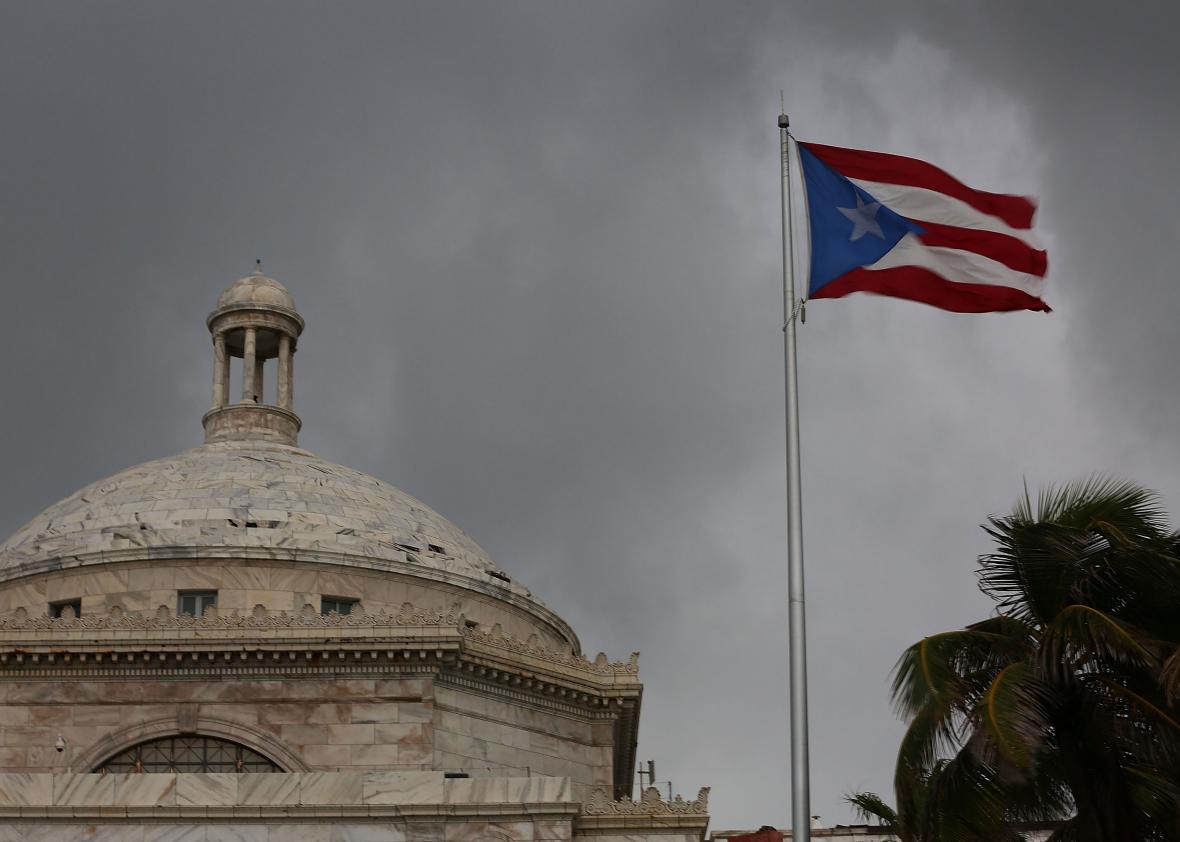So it looks like Puerto Rico has some fun weekend plans. After months of staggering under its $72 billion debt load, the island is expected to miss a bond payment due Saturday, which—despite what some government officials have claimed—means the island is probably heading for default. (We won’t know for sure whether it happens until Monday, according to Reuters, since the cash isn’t due until the next business day).
Think of this as a gentle warmup for a much bigger confrontation over Puerto Rico’s debt that’s still to come. The government is set to skip a relatively small $58 million payment on a set of bonds largely owned by Puerto Rican credit union members, who—unlike the many hedge funds among the island’s creditors—aren’t especially likely to sue for their money. Even if they did, not much would come of it, since the debts in question are “moral obligation” bonds—so-called because issuers only have a moral (ha), but not legal, obligation to pay them back.
Still, as Bloomberg puts it, this is basically Puerto Rico’s “warning shot to investors that officials aren’t afraid to default.” The island says it simply doesn’t have the cash flow to cover its obligations (which may well be true), and is working on a debt-restructuring plan it should have done by Sept. 1. But by skipping this weekend’s payment, it’s signaling to creditors that they should really consider making a deal or risk getting stiffed. Whether the act of defaulting on a group of credit-union members who lack much in the way of legal recourse will intimidate some steely hedge funders remains to be seen.
How’d we get to this point? To start, Puerto Rico has been in the midst of deep and painful economic slump since 2006, when Congress killed off a crucial tax break that encouraged manufacturing on the island. The problems were exacerbated by the financial crisis and global recession, which the island has never really recovered from. Unemployment currently stands at 12.4 percent, and the barren job market is helping to fuel a mass exodus of young people to the mainland, which, in turn, is further hampering Puerto Rico’s economy. Despite all of its very glaring problems, however, Puerto Rico had a fairly easy time borrowing to paper over budget deficits, because its bonds were exempt from federal, state, or local taxes, which made them popular among investors.
Now Puerto Rico’s debts have become unsustainable. Probably. A report commissioned by a group of bond holders suggested the territory could meet its payments by doing a better job of collecting taxes that it’s owed and cutting spending, especially on schools, since enrollment has plummeted in recent years (again, population decline is a killer). The government, obviously, feels quite differently. After all, as Greece has taught us, slashing government spending and services in order to pay off debt has a way of further beating down growth. The worse the economy gets, the more Puerto Ricans will likely leave the island, which will mean fewer tax revenues and even weaker potential for growth. Gov. García Padilla has called it a potential “death spiral.”
Congress could possibly help here, but being Congress, it likely won’t. Just like U.S. states, Puerto Rico itself can’t file for bankruptcy. But unlike actual states, the territory’s cities and public corporations can’t file for it either. It would help if they could—roughly $20 billion of Puerto Rico’s public debts belong to agencies such as its electric utility and highway and transportation authority. Treasury Secretary Jack Lew recently called for a bill that would let those entities file for Chapter 9 protection, just like Detroit did, but some hedge funds, which are hoping to get paid back on their bonds in full, have lobbied hard against it, and Republicans in control of the House have been opposed.
So, assuming Congress stays logjammed as usual, Puerto Rico and its debtors will have to sort out a deal on their own or take their conflict to court—where, frankly, it’s hard to say exactly what would happen. For the time being, though, Puerto Rico is showing that it won’t just roll over. Or it’s trying to, anyway.
